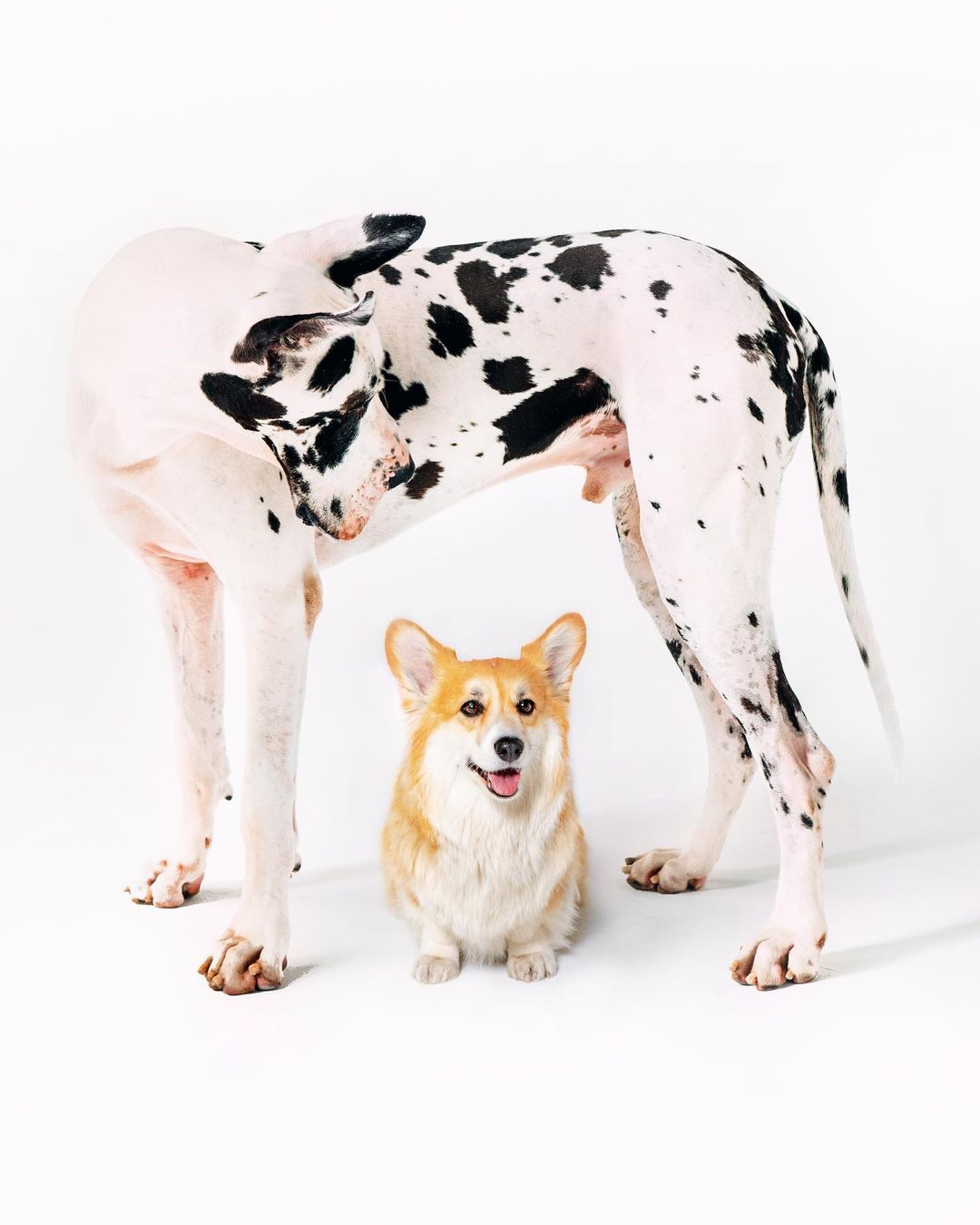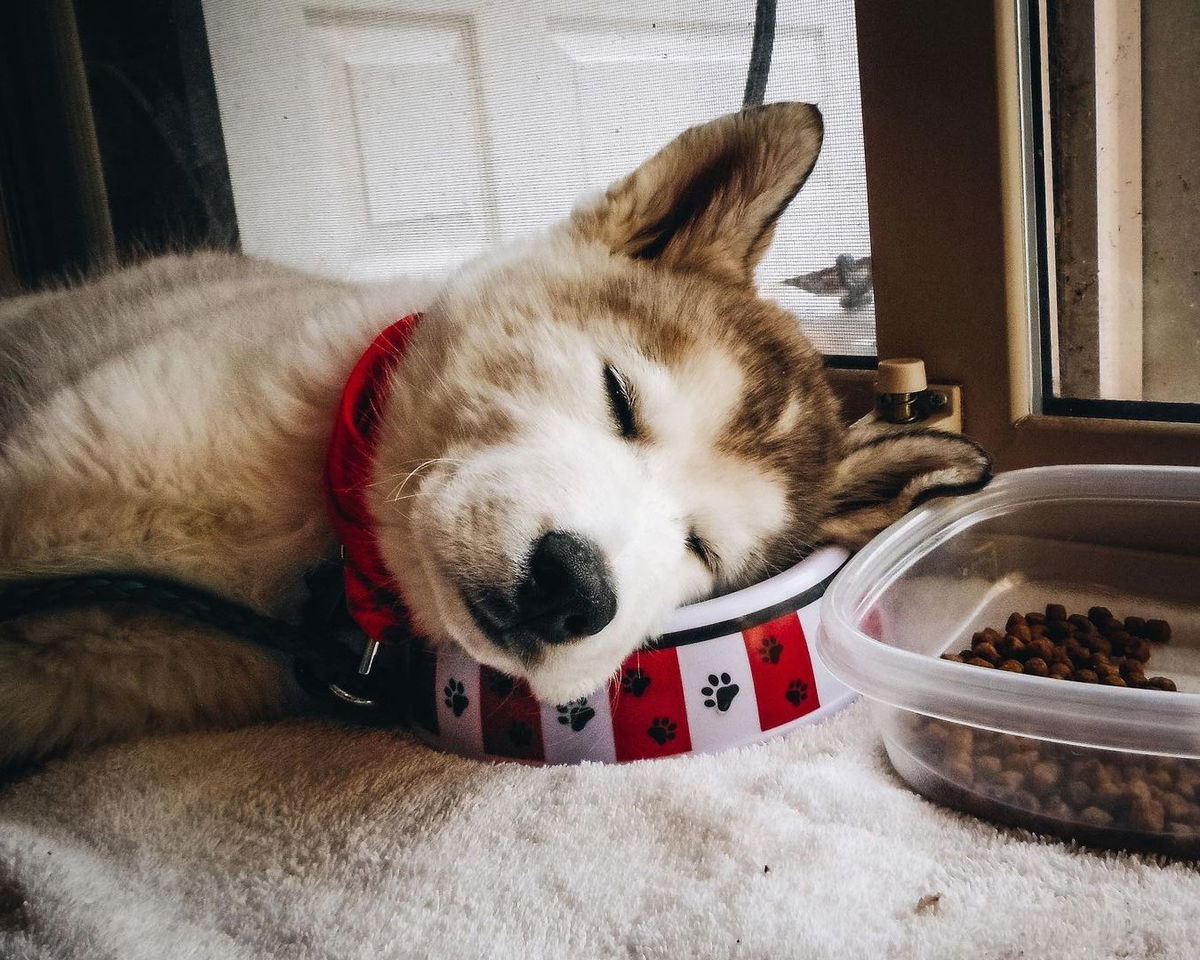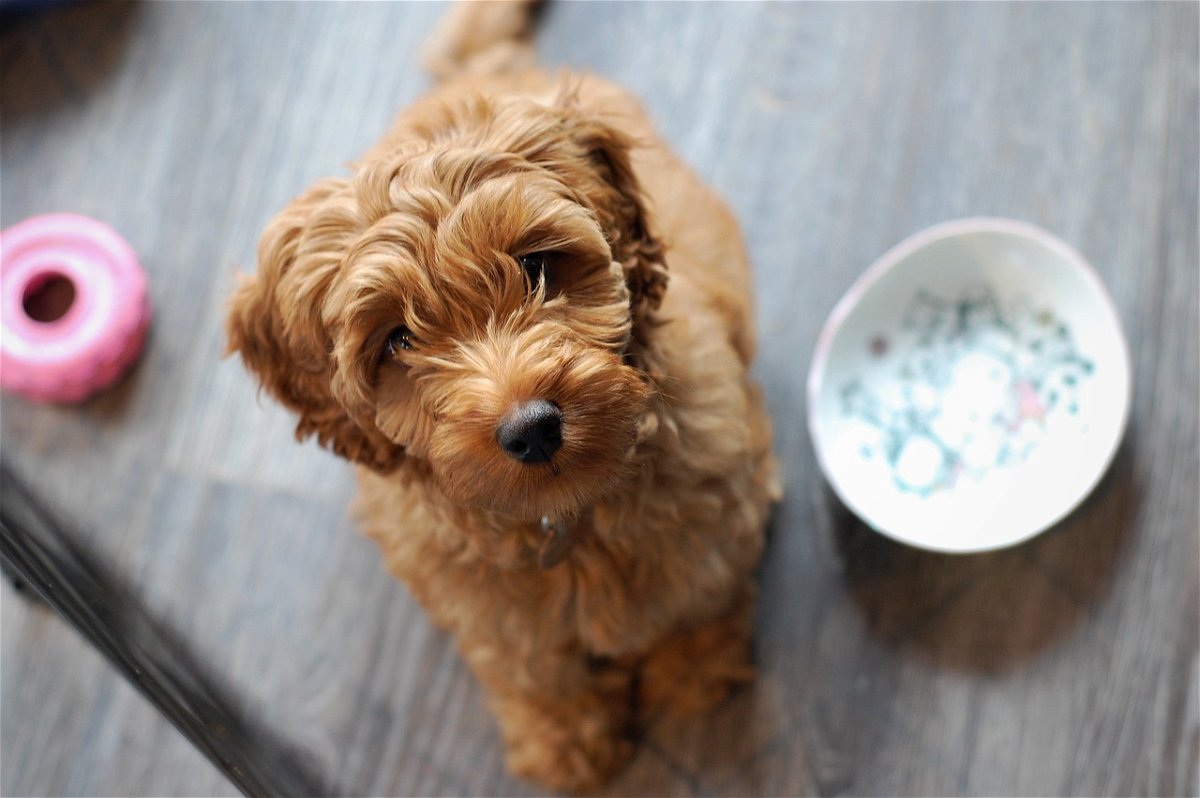We're an affiliate
We hope you love the products we recommend! Just so you know, we may collect a share of sales or other compensation from the links on this page at no additional cost to you. Thank you if you use our links, we really appreciate it!
Sometimes it seems like your puppy is always hungry. Knowing what is normal and when to be concerned is tricky because how much you feed can impact your puppy’s health and well-being for the rest of their life.
Lots of factors affect your puppy’s appetite. Knowing how to handle their hunger, determine if it’s normal, and how much to feed, is important.
We’ll cover all that and more in this article. Let’s start with the individual characteristics that affect your puppy’s appetite.
Why Is My Puppy Hungry All the Time?
Five main reasons impact your puppy’s appetite, it’s important to remember that each puppy is different and their appetite will be too. Let’s start by discussing growth spurts.
Natural Growth and Development
As your puppy grows it will go through periodic growth spurts, as they go through it they will have a larger appetite.
Their body will need more nutrients to support its growth, high-quality nutrients fuel healthy bone, muscle, and brain development. You must give them these nutrients so they grow up healthy.
Some puppies also have a high metabolism just like humans.
High Metabolic Rate
Just like humans, some dogs have a higher metabolism, their bodies process nutrients faster. This is especially true for puppies vs. adult dogs, this means they need more frequent meals as well as more food.
Metabolism can also be affected by different-sized puppies and different breeds.
Breed and Size Variations
Dogs are bred for different reasons and purposes, they often have different calorie requirements. Active puppies, like border collies, have higher metabolisms than sedentary puppies like bulldogs, size can also affect your dog’s appetite. A smaller puppy has less physical growth and so will need less food.
If your puppy’s constant hunger isn’t due to their breed it could be more related to their environment.

Environmental Factors
If your puppy is very active and their body temperature is very high, it may affect their appetite. This can cause them to seem hungry more often, remember that highly active puppy above? They are going to need a lot more food than a calmer, less active puppy.
Your puppy’s activity levels can also contribute to psychological reasons for hunger.
Psychological Factors
If you’ve ever eaten food just because you’re bored you’ll understand this. Puppies can feel the same way, stress, excitement, and curiosity can all contribute to your puppy’s constant hunger.
Puppies will eat due to emotions just like humans do, it’s important to recognize that and adjust their feeding accordingly.
All this begs the question, if your puppy is hungry should you always feed them?
Should I Feed My Puppy More if He Seems Hungry?
Some of the reasons your puppy is hungry are legitimate and can be solved with more food, but it’s important to differentiate between developmental needs and psychological reasons.
If your puppy is bored or begging to receive attention it’s important to not feed them.
A good way to manage your puppy’s hunger is to set up a consistent feeding schedule, setting up a schedule to feed your puppy will give you information. You will be able to tell whether your puppy is actually hungry or not.
If your puppy isn’t actually hungry there are some good strategies to avoid feeding them:
- Distract your puppy with a game or activity rather than feeding them.
- Make your feeding schedule more complex with more small meals per day.
- Turn feeding times into training sessions so they get food and stimulation.
- Slowly switch them to a high-fiber diet to avoid packing on weight with carbs.
These are great tips to follow. But how much should you feed your puppy every day?
How Much Food Should a Puppy Eat per Day?
This is a great question, unfortunately, every puppy is going to be different. It will depend on your puppy’s age, size, and breed, it will also depend on the quality of food you feed.
Feeding high–quality food is important, it will ensure your puppy gets the right number of nutrients in the right amount of food.
High-quality puppy foods include feeding guidelines on their packaging, which will tell you how much to feed a puppy for each age range and size. As well as personalizing it to the size of the dog that your puppy will grow into.
This is a great resource to use so you know how much to feed your puppy as it grows, at every stage of development, your puppy will have different nutritional needs. A four-month-old puppy is going to need a different amount than a six-month-old puppy.
Remember that the food company is offering guidelines not rules. Your puppy may need more or less than they recommend, based on the factors discussed above.
Now you have your guidelines but what are some signs you’re overdoing the amount you feed?
How Do I Know if I’m Feeding My Puppy Too Much?
It’s important to feed your puppy the right amount. Overfeeding your puppy can cause a lot of discomfort for them. Things like:
- Vomiting
- Diarrhea
- Bloat
- Lethargy
- Obesity
- Joint problems
Overfeeding your puppy regularly can affect its growth, development, and future health, some of the symptoms above can be cleared up, often with few repercussions. However, obesity and joint problems are particularly hard on a developing puppy.
As they grow, extra weight puts pressure on their developing bones, this is one of the causes of joint pain. Obesity can decrease your puppy’s lifespan and lead to other diseases, this is why it is so important to be able to adjust your puppy’s diet to the right amount.
A good way to tell if your puppy is overweight is with their body score, your puppy’s body condition can guide you on how much to feed. It will help you adjust their food amount to fit their individual needs, body condition is not hard to keep track of:
- Make sure your puppy has a clearly defined waist when looked at from above. If their waist is even with or bigger than their rib cage then they are overweight.
- Run your fingers along their ribs. You should be able to feel each individual rib but not see them.
- Their belly should be smaller than their ribcage. If their belly is even with, or bigger than their rib cage it is time to decrease their food intake.
If you notice any of these signs it’s time to decrease your puppy’s food intake, what about signs that you’re not feeding your puppy enough?
Signs You Are Underfeeding Your Puppy
There are several signs to look for if you’re concerned you aren’t feeding your puppy enough.
Lethargy or Lack of Energy
If your puppy has low energy or doesn’t want to play, you may not be meeting their energy needs with food. Make sure they are getting enough good quality food to support them.

Weight Loss or Failure to Gain Weight
If you’re feeding your puppy the recommended amount, they shouldn’t be losing weight. They also shouldn’t stay the same weight as they grow; they may need more food. Remember every puppy will have individual needs based on many different factors.
Visible rib cage, spine, or pelvic bones
If your puppy’s bones are sticking out, they are not getting enough nutrition to support their growth. Or keep a healthy amount of body fat.
Definitely increase their diet. They may be going through a growth spurt and not getting the nutrition they need to support it.
Dull and lackluster coat
When your puppy’s coat loses its shine it means they aren’t getting enough nutrition to support them, coat condition is often one of the first signs to look for. Make sure your puppy’s coat is both shiny and soft.
Slow or stunted growth
If your puppy isn’t growing at the normal pace for their breed and age it is time to adjust the amount you are feeding them.
Your puppy may go through some periods where they grow less, but they should also go through growth spurts where they grow a lot.
If your puppy has one or more of these signs it is time to increase their food intake.
In Conclusion
Your puppy’s nutrition is so important for their current and future well-being. Your puppy will go through many different developmental and growth stages which will likely affect their appetite.
Strike a balance between the nutrition your puppy needs to grow healthy and develop, as well as the nutrition your puppy needs to satisfy their appetite. It will lead to a happy and healthy life for your puppy.
Laura is the founder of Furs'n'Paws. She is a also a pet writer and expert with more than 20 years of experience of working with dogs and cats. She developed a very strong love for animals at a young age. Her passion led her to establish a thriving pet sitting and dog walking business in Dubai. As an expert in pet training, behavior, and nutrition, Laura is committed to helping pet owners and pet lovers by offering high-quality information on a wide range of topics.



No responses yet